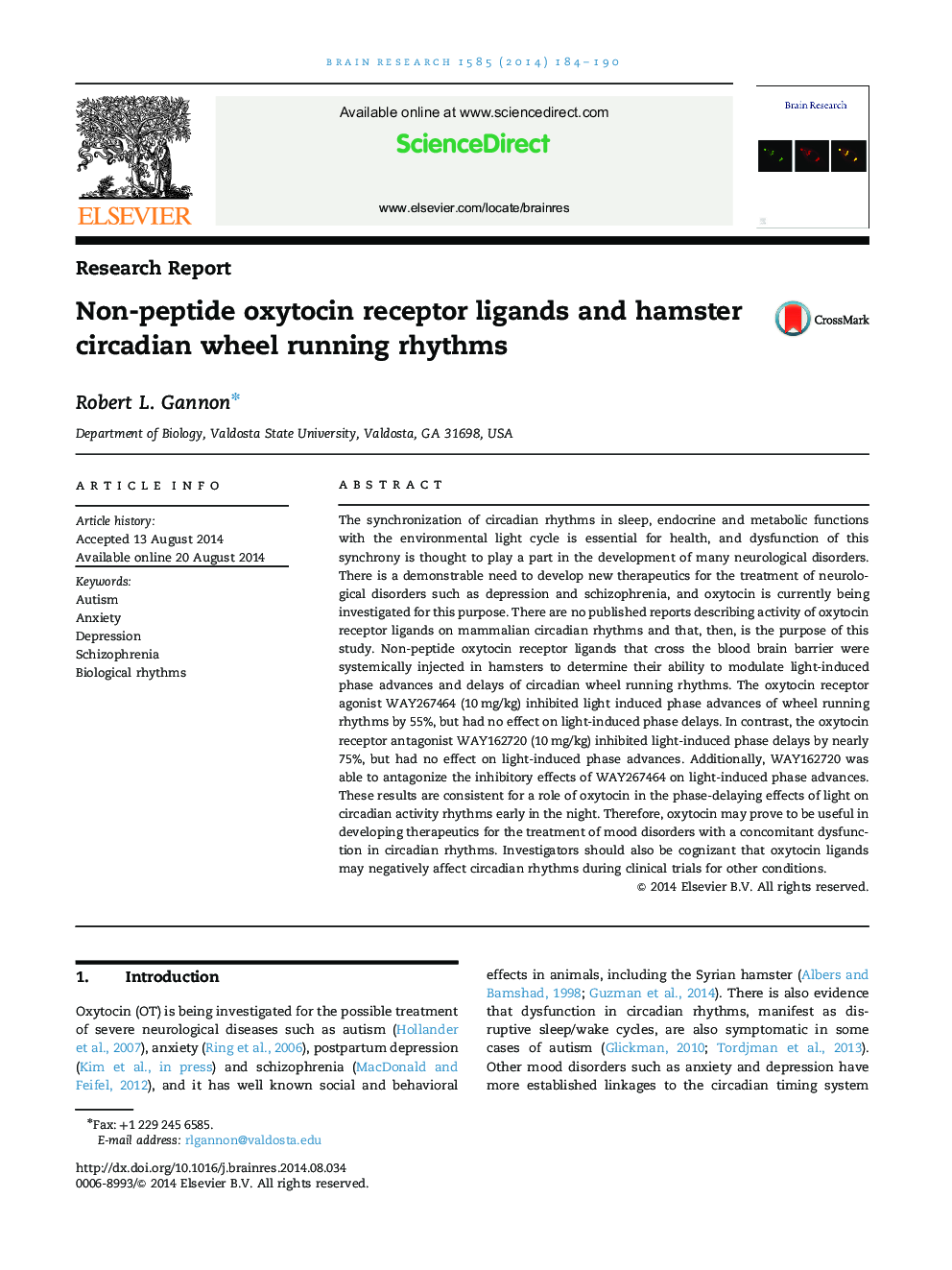| کد مقاله | کد نشریه | سال انتشار | مقاله انگلیسی | نسخه تمام متن |
|---|---|---|---|---|
| 6263299 | 1613854 | 2014 | 7 صفحه PDF | دانلود رایگان |
- Many neurological diseases have abnormalities in circadian rhythms.
- Oxytocin has unknown effects on the entrainment of circadian rhythms.
- The oxytocin receptor agonist WAY267464 inhibits phase advances in hamsters.
- The oxytocin receptor antagonist WAY162720 inhibits phase delays in hamsters.
- Oxytocin ligands may be useful to treat diseases with circadian rhythms dysfunction.
The synchronization of circadian rhythms in sleep, endocrine and metabolic functions with the environmental light cycle is essential for health, and dysfunction of this synchrony is thought to play a part in the development of many neurological disorders. There is a demonstrable need to develop new therapeutics for the treatment of neurological disorders such as depression and schizophrenia, and oxytocin is currently being investigated for this purpose. There are no published reports describing activity of oxytocin receptor ligands on mammalian circadian rhythms and that, then, is the purpose of this study. Non-peptide oxytocin receptor ligands that cross the blood brain barrier were systemically injected in hamsters to determine their ability to modulate light-induced phase advances and delays of circadian wheel running rhythms. The oxytocin receptor agonist WAY267464 (10Â mg/kg) inhibited light induced phase advances of wheel running rhythms by 55%, but had no effect on light-induced phase delays. In contrast, the oxytocin receptor antagonist WAY162720 (10Â mg/kg) inhibited light-induced phase delays by nearly 75%, but had no effect on light-induced phase advances. Additionally, WAY162720 was able to antagonize the inhibitory effects of WAY267464 on light-induced phase advances. These results are consistent for a role of oxytocin in the phase-delaying effects of light on circadian activity rhythms early in the night. Therefore, oxytocin may prove to be useful in developing therapeutics for the treatment of mood disorders with a concomitant dysfunction in circadian rhythms. Investigators should also be cognizant that oxytocin ligands may negatively affect circadian rhythms during clinical trials for other conditions.
Journal: Brain Research - Volume 1585, 17 October 2014, Pages 184-190
